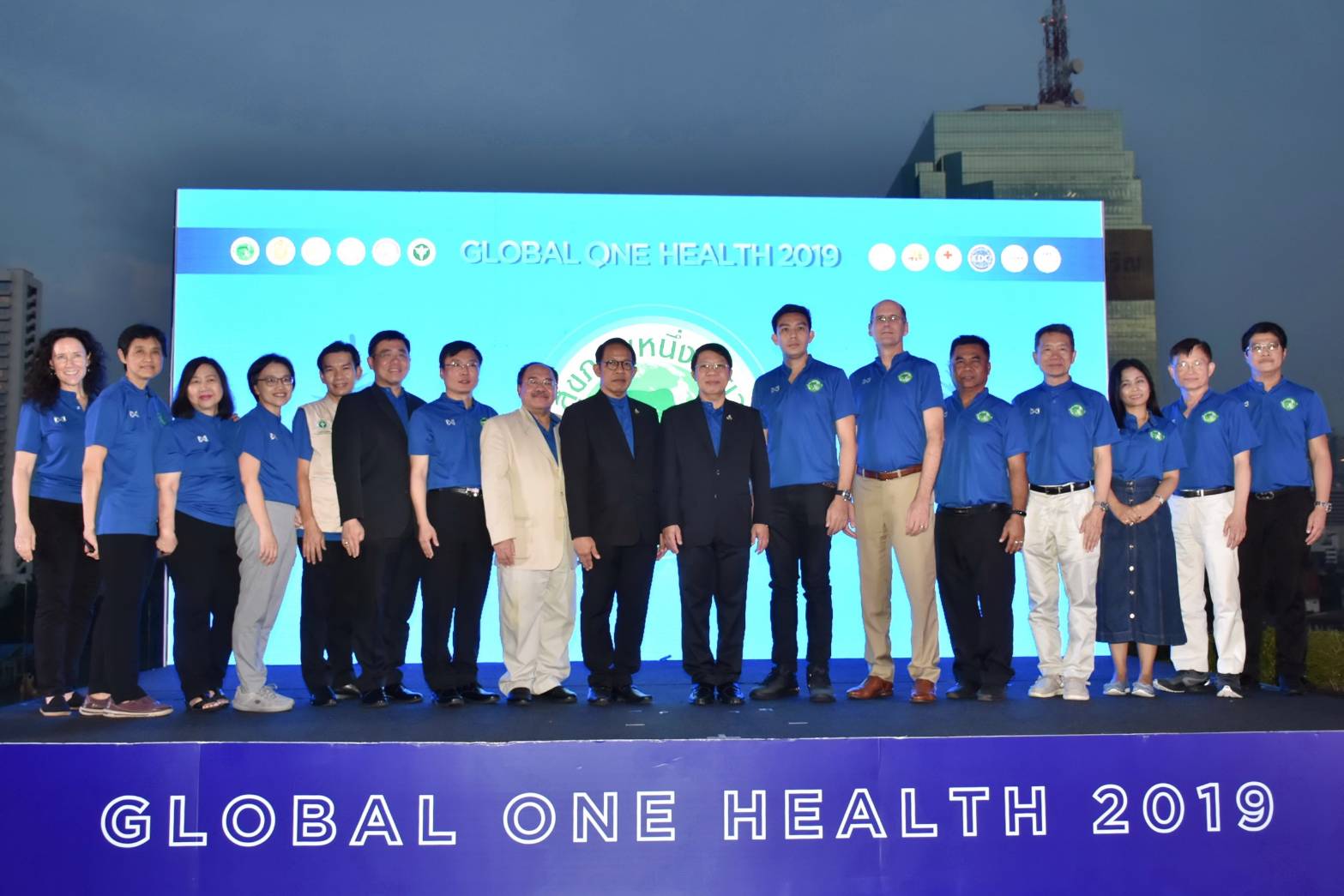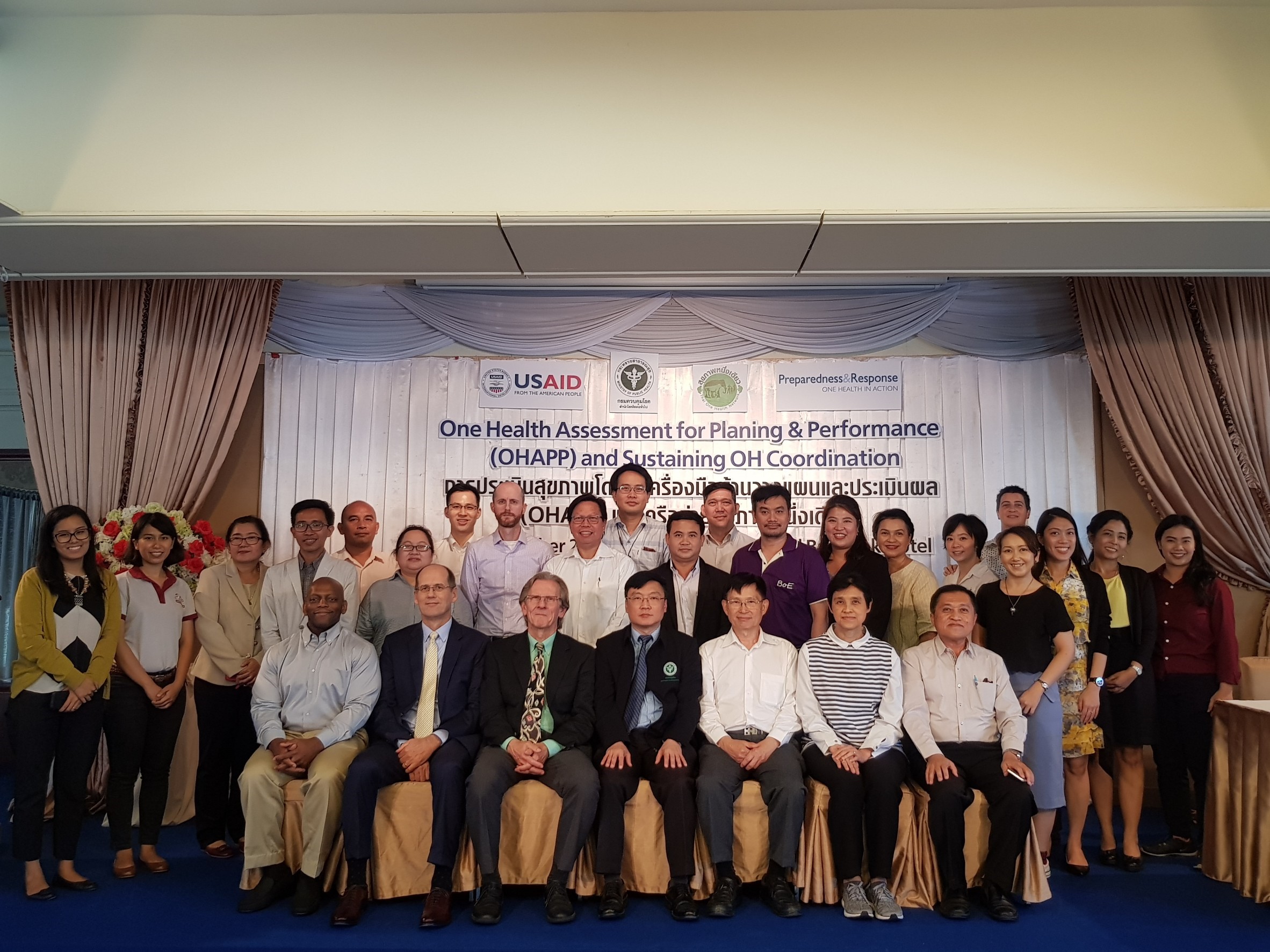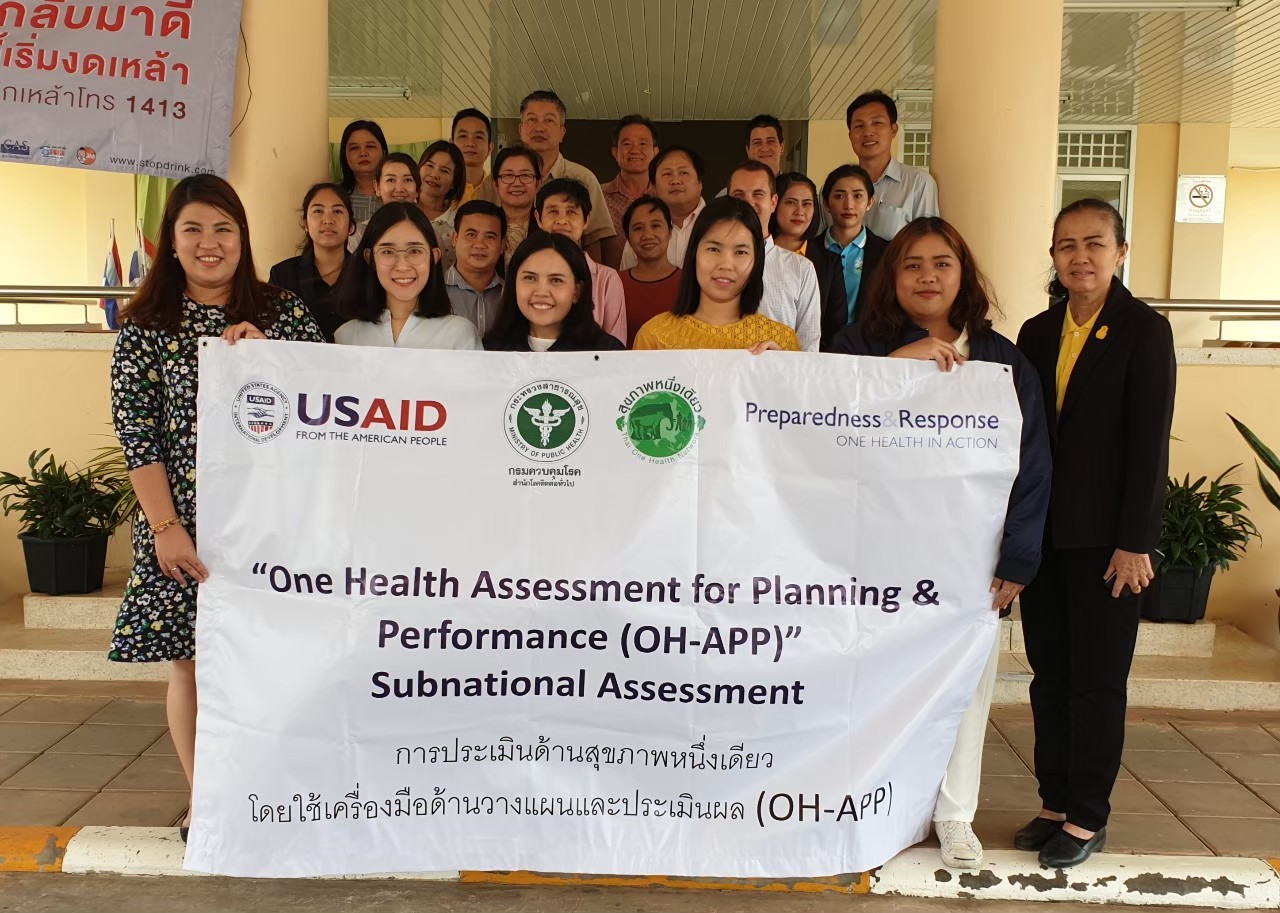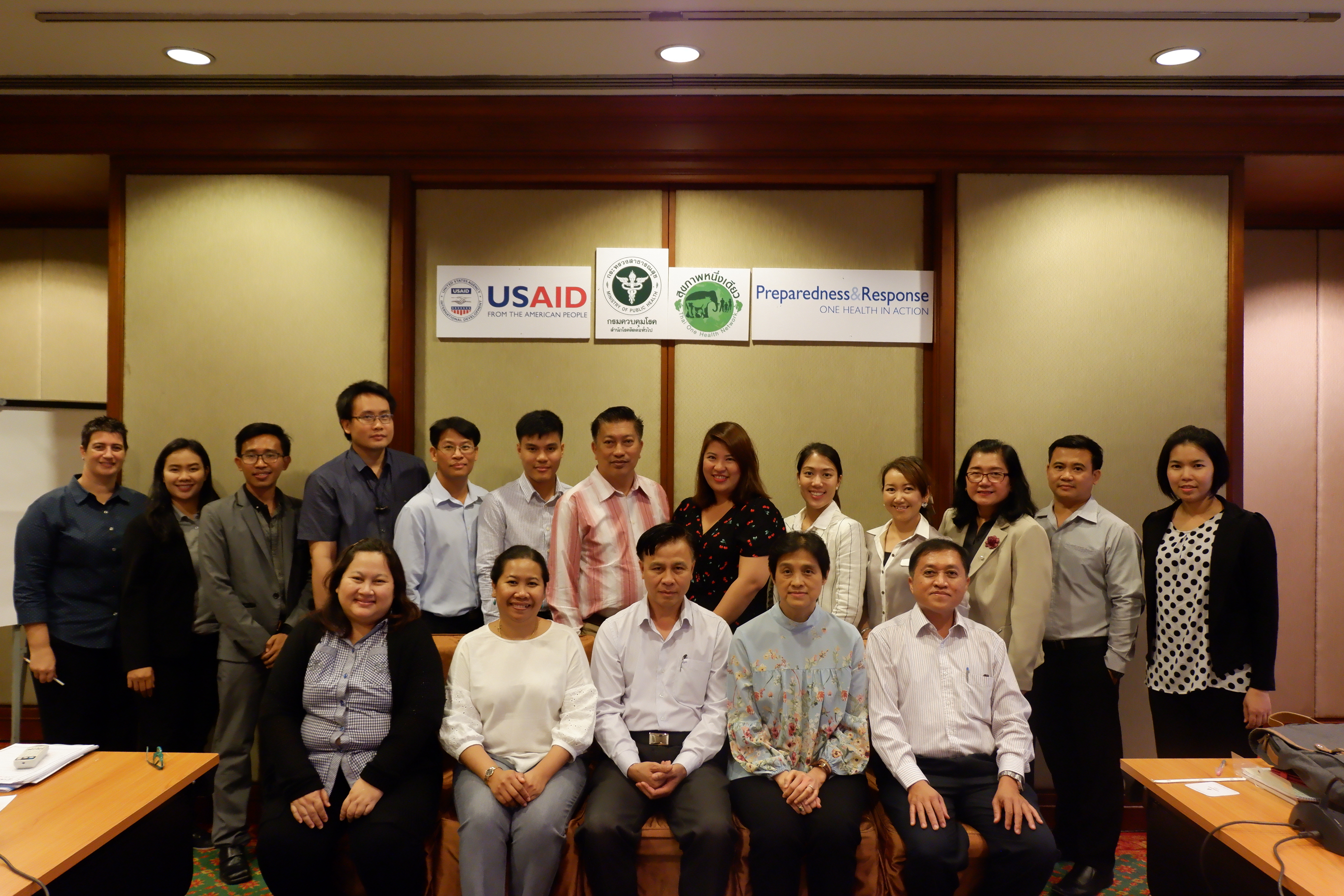Thai One Health Network is a nationally focused network dedicated to promoting improved health of people, livestock animals, wildlife, and environment.
The mission of Thai One Health Network is the establishment of trust-based and sustainable collaborations through cross-sectorial and multidisciplinary training, education, research and public service.
We, the participants of this One Health Thailand Network meeting, declare our intention on One Health as follows:
1. To recognize the importance and need of the “One Health” concept in the preparedness and response to emerging infectious diseases.
2. To work collaboratively among human health, animal health, wildlife health and ecosystem discipline in the public sector, private sector and academic institutions, with the common aim of achieving public benefit and optimal health for all in Thailand.
3. To jointly develop policy recommendations and a work plan for both the short and long-term in Thailand.
4. To work collaboratively with agencies and networks in the region and worldwide, to collectively mobilize resources for the implementation of the work plan with maximum efficiency and for public benefit.





Changes in social conditions, global environment, and people’s lifestyle over the past several decades have led to the massive epidemics of endemic diseases and emerging infectious diseases, for example Severe Acute Respiratory Syndrome or SARS, avian influenza, pandemic influenza, etc. The spread of these epidemic threats has caused social and economic impacts worldwide. About 75% of life-threatening infectious diseases in humans are found originating from husbanded or wild animals. Therefore, many countries have paid considerable attention to animal disease control to prevent transmission to humans.
Domestic animals’ and wildlife’s good health will contribute to people’s wellbeing. The integrated approaches have been applied to promote health improvement for people, domestic animals, and wildlife in favorable ecosystem through collaborative efforts under the “One Health” concept.
The “One Health” concept enhances interdisciplinary and cross-agency collaboration and coordination at all levels of health care for humans, animals, wildlife, and environment to achieve unity of operations.
Several international organizations have actively collaborated in formulating a framework of strategies for endemic and emerging infectious disease control, response, and prevention.
Thailand has implemented the One Health approaches by placing a particular emphasis on creation of cross-sectoral networks, provision of policy recommendations, and development of short- and long-term plans for the most efficient operations and maximum benefits to the public.
The “One Health” concept is incorporated into the four-year national strategic plan against the threat of emerging infectious diseases during 2013-2016. The concept aims to encourage all related parties including government sector, private sector and state enterprises involving in emerging infectious diseases the collaborate and develop their surveillance system, prevention, treatment and controlling measures of the emerging infectious diseases.
The activities comprise:
1. Enhance the effectiveness of the prevention against emerging infectious diseases in an integrated manner.
2. Integration of surveillance systems for emerging infectious diseases in humans, domestic animals, wildlife, and ecosystem.
3. Development of laboratory capacity and networks.
4. Development of diagnostic, treatment, and controlling system of the emerging infectious diseases.
5. Strengthening of disease investigation and control in an integrated manner.
The concept of “One Health” requires a concerted support in terms of policies and particular mechanism to put the idea into practice in a concrete and sustainable manner. It is essential to communicate “One Health” messages to all public health-, livestock-, wildlife-, and ecosystem-related agencies to build mutual collaboration and coordination.
By this way, Thailand will be successful in preventing and minimizing the global risk of emerging infectious diseases, including the spread of communicable diseases at the human-animal-ecosystem interface.
Collaboration across sectors and disciplines allows countries to effectively plan and prepare for, detect, assess, and respond to health threats; however, many countries have no mechanisms in place for such collaboration. WHO, in collaboration with international partners such as OIE and FAO, produces national-level tools, guidance, and training to support countries in implementation of multisectoral collaborative approaches.